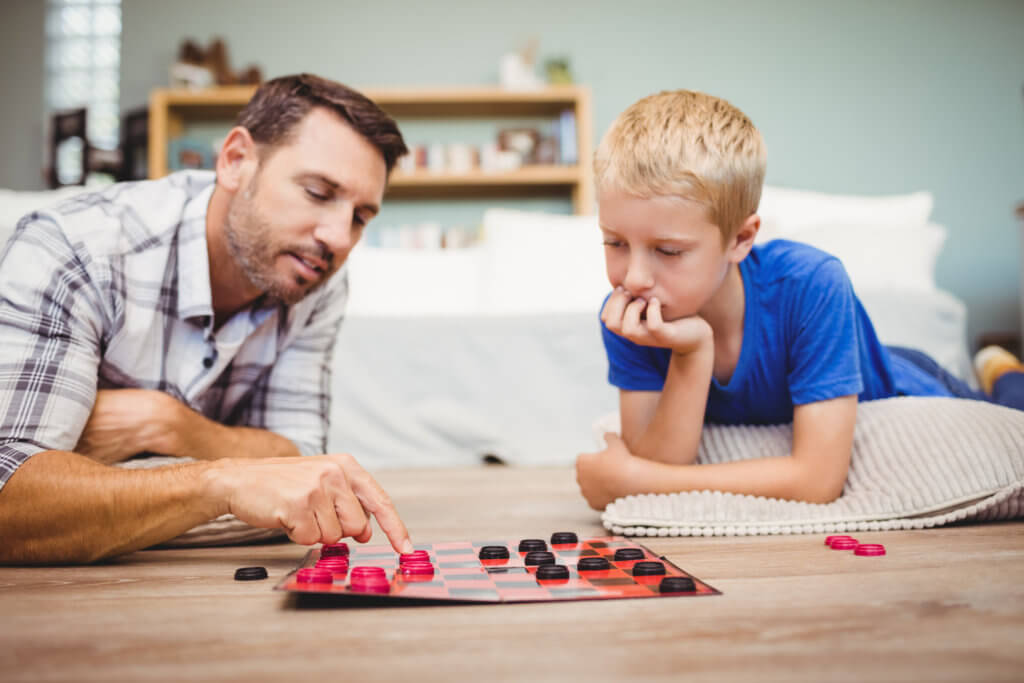What’s your child’s favorite board game? As a Parent, have you ever thought about what social skills they may be building when playing their favorite game? Now, you may be wondering how can board games help my child build social skills? Board games offer much more than just a friendly competition or an excuse to have some fun, board games actually build social skills!
The 5 most recognized Social Skills are Basic Communication Skills, Empathy and Rapport Skills, Interpersonal Skills, Problem Solving Skills, and Accountability Skills. We are going to explain each type of social skill and how using board games can build on them.
Basic Communication Skills – These are the skills that include your child’s ability to listen and follow directions, refrain from speaking until it is appropriate, and the ability to reflect and give feedback on the current conversation. These skills can also be shown through your child’s body language, eye contact, posture, physical stillness, etc.
Board games require your child to listen and follow the game’s directions in order to play successfully. You can also prompt your child to demonstrate that they are listening or paying attention through the game by nodding, smiling, or giving feedback on a move that was made.
Empathy and Rapport Skills– These skills surface when your child begins to volunteer to help or assists others, however, this is not a natural skill for many kids. Empathy includes how they respond to both winning and losing a game.
Board games allow your child to volunteer and assist others in a controlled environment, which helps them acknowledge the feeling of becoming overwhelmed.
Interpersonal Skills- These are the skills that show your child’s ability to share, ask for permission, and wait patiently for their turn. If you avoid playing games with your child (due to their competitiveness) this is an area to work on.
Board games require each player to wait patiently for their next turn, which helps your child practice this skill.
Problem Solving Skills– These are skills your child uses when they ask for help, apologize to others, and accept the consequences of their choice. If your child has difficulty with problem solving skills, they may refrain from asking for help. They also may have difficulty dealing with losing the game.
Board games put your child in a situation where they may have to face problems within the game, such as; having to move back a few spaces or missing a turn. This problem solving allows board games to be an excellent tool. Focus on games that have choices (like two pieces that can be moved) if your child shows a need to improve their problem solving skills.
Accountability Skills– These skills surface when your child is faced with dealing with constructive feedback and accepting the blame for a problem they may have caused. Your child may struggle with these skills if they are scared of being criticized or confronted, and struggle to accept blame.
Constructive criticism puts them in the position where they must receive the feedback to continue playing the game and work through the feelings they may experience after.
We often use board games in both our social skills groups and individual services to promote growth in the above areas. You can learn a lot about a child and their social weaknesses through games. The more you play at home, the more improvement you will find! If your child is ultra competitive, and you need help breaking that cycle, or you just want to learn more about the process, click below, to schedule your first appointment.
Want to learn more about social skills? Click here.
Contact us today to schedule a first time appointment.

